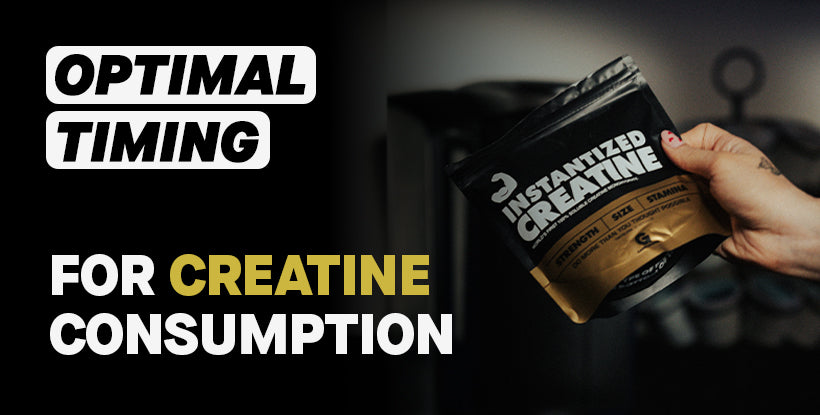When it comes to building strength and boosting athletic performance, creatine is a must-have supplement for anyone looking to optimize their overall health. It's one of the most widely researched and commonly used supplements in sports nutrition, with benefits ranging from increasing muscle mass and strength to enhancing exercise capacity during high-intensity workouts.
However, the question remains: when is the best time to take creatine to maximize its effectiveness?
The Role of Creatine in Energy Production
Before we tackle the question of timing, it's essential to understand the role creatine plays in energy production. Creatine is a compound that exists naturally in the body, mainly in muscles, where it's utilized to produce energy. During high-intensity and explosive exercises, your body relies on fast-twitch muscle fibers, which use a great deal of adenosine triphosphate (ATP), the body's energy currency.
Creatine steps in to restore this ATP, as it has the capability to donate a high-energy phosphate molecule to ADP, thereby regenerating ATP to power further muscle contractions. This role in energy production is what makes creatine such a popular supplement among bodybuilders and athletes.
The Myth of an 'Optimal Time'
While some may lead you to believe that the timing of creatine intake is the difference between results and wasted effort, the reality is less glamorous. Studies have shown that the timing of your creatine intake is not as critical as once thought. Unlike protein or carbohydrates, which have time-sensitive 'windows of opportunity,' creatine's effect on energy production is more about consistent and total intake over days and weeks rather than the acute timing around workouts.
For example, if you consume 5 grams of creatine daily, the concentration within your muscles will be roughly the same whether you take it at 7 a.m. or 7 p.m. The "loading phase," during which athletes take up to 20 grams per day for the first week, also shows no difference in terms of timing, and serum creatine levels vary little throughout the day.
Taking Creatine with Meals
While you might not need to watch the clock for the best creatine results, there are strategies worth considering to optimize its benefits. Taking creatine with meals, especially those high in carbohydrates could help improve absorption. This is because the increase in insulin levels from a carbohydrate-rich meal can enhance creatine uptake by muscle cells.
Additionally, taking creatine with meals tends to reduce any stomach discomfort some users experience. Since creatine is commonly combined with water and consumed quickly, this can be harsh on the stomach for some individuals. In contrast, taking it with a meal provides a more gradual digestion and absorption process.
Rest Days and Continuous Creatine Intake
For maximum benefit, consistency with creatine supplementation is imperative. Even on rest days, it's advised not to skip doses. The ideals for rest days are the same as training days: consume your recommended daily serving to maintain high muscle tissue saturation and maximize stores for the next workout.
While it's true that high-intensity workouts will deplete muscle creatine stores, the average person also expends small amounts of ATP and creatine for movements throughout the day. This steady reduction means you'll benefit from a continuous intake to ensure your levels are consistently topped up.
One Scoop, Once a Day - No Matter What
The quest for the perfect timing for creatine intake might not yield a definitive answer, but key principles hold true. For ease of digestion and absorption, it's ideal to take creatine with meals, especially those rich in carbohydrates. On rest days, don't skip out on your daily serving. Research suggests that the outcome is much the same whether taken before or after a workout as long as you're consistent with your intake.
There is no magic hour or minute, just a consistent routine that ensures your body can access creatine when needed. Remember, the most critical factor for creatine to work wonders is not the clock but the total compound delivered to your system over time. Shake off the anxieties of precision and focus instead on a steady and measured approach to creatine intake.

